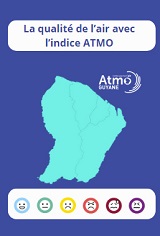Blada.com
mercredi 17 décembre
Boîtes aux lettres
Courrier des lecteurs
Petites annonces
Emploi / Formation
Covoiturage
Infos citoyennes
Infos citoyennes
29/01/21
Praticiens à diplôme hors UE : les premières sélections sont faites
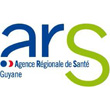
Depuis le 6 janvier, les jurys ont auditionné plus de 340 candidats à l’exercice en Guyane et Martinique dans le cadre de la nouvelle procédure issue de la réforme de l’Ordonnance de 2005. Ces sélections ont débuté dans douze spécialités pour lesquels les hôpitaux ont besoin de renforcer leurs équipes médicales. Seuls les praticiens retenus à l’issue de cette procédure très sélective pourront désormais être contactés par les hôpitaux lorsque ceux-ci engagent des opérations de recrutement.
C’est une petite feuille A4 qui semble voler de porte en porte, dans les couloirs de l’Agence régionale de santé. Chaque matin, elle semble apparaître sur une porte différente. Elle dit simplement : « Audition des candidats Padhue. Merci de ne pas déranger. » Elle dit surtout l’intensité des sélections qui se déroulent actuellement pour les postes de praticiens à diplômes hors Union européenne : plus de 340 entretiens se sont déroulés avec les candidats en à peine trois semaines.
Pour la première fois depuis l’ordonnance de 2005, le mode de recrutement des praticiens à diplômes hors Union européenne (Padhue) a changé. En septembre, à l’issue d’un recensement des intentions de recrutement dans les hôpitaux, l’ARS de Guyane publiait une liste de 249 postes susceptibles d’être pourvus par des PADHUE. Deux mille deux cents candidatures ont été déposées en un mois. Après constitution des comités de sélection (médecins désignés par l’Ordre National des médecins et l’Université de médecine), les meilleurs dossiers ont été sélectionnés par des médecins de chaque spécialité. Les candidats correspondants ont alors été convoqués à un entretien en visioconférence. Les candidats retenus sont inscrits sur une liste d’aptitude par spécialité, chaque liste est rendue publique (site internet de l’ARS). Les établissements pourront alors procéder à des recrutements, dans la limite des postes ouverts aux Padhue et des candidats admis sur les listes d’aptitude. Depuis le 6 janvier, ce sont donc les entretiens qui se succèdent.
« Avant les auditions, les membres du jury ont pu consulter les dossiers des candidats et réaliser une présélection, explique Joana Girard, directrice adjointe de l’offre de soins à l’ARS Guyane. Lors des auditions, ils ont des questions sur ce qu’on attend des professionnels – un junior, un senior, quelqu’un qui fait de l’interventionnel… - et en ayant en tête les besoins des hôpitaux. » Le Dr Sophie Biacabe, médecin de santé publique à l’ARS, a ainsi participé aux auditions pour la pédiatrie. « Nous savons que les hôpitaux ont des besoins en réanimation néonatale. Nous avons donc privilégié les candidatures de praticiens avec de l’expérience. » Dans la plupart des spécialités pour lesquels les entretiens ont eu lieu, ce sont au final à peine un candidat préselectionné sur deux qui sont retenus.
« Le jury fait preuve à la fois de bienveillance et d’exigence, estime le Dr Guillaume Icher, chargé de mission CHU à l’ARS. Nous avons pu auditionner beaucoup de candidats, potentiellement des quatre coins du monde, sans connaître de gros couac. En anatomopathologie, par exemple, nous avons pu auditionner tous les candidats. Il y avait d’excellents dossiers. »
Outre les représentants des ARS de Guyane et Martinique , les jurys sont composés de professionnels de santé désignés par les conseils nationaux des ordres des professions concernées, et par l’université. C’est ainsi qu’y ont participé ou y participeront le Pr Narcisse Elanga, chef du service pédiatrie au centre hospitalier de Cayenne (lire ci-dessous), le Pr Olivier Hermine (AP-HP), le Dr Max Gérard (ophtalmologie), Magaly Zappa, responsable du service d’imagerie médicale au CHC, le Dr Caroline Janvier, responsable du pôle psychiatrie au CHC, le Dr Yves Cheney (psychiatrie), le Dr Papa Demba Lam (cardiologie) ou encore le Dr Elie Chow-Chine (ophtalmologie).
D’ici au 9 février, les entretiens auront été réalisés pour 12 spécialités pour lesquels les besoins de recrutements des établissements de santé sont les plus urgents : radiologie, médecine intensive – anesthésie-réanimation, néphrologie, hépato-gastro-entérologie, médecine cardio-vasculaire, anatomopathologie, hématologie, ophtalmologie, psychiatrie, pédiatrie, pneumologie et onco-radiothérapie. Les jurys de plus de 20 autres spécialités sont en cours de constitution et pourront mener les sélections entre fin février et fin mars.
- Pr Narcisse Elanga : « Nous avons été rigoureux et sélectifs »
Le Pr Narcisse Elanga, chef du service de pédiatrie au centre hospitalier de Cayenne, a participé au jury dans sa spécialité : « C’était vraiment une très belle aventure. C’est une belle façon de recruter. Il y avait plusieurs niveaux de sélection. D’abord le dossier, puis les pièces à produire, les justificatifs à fournir et enfin le jury. Nous avons bien travaillé. J’estime que nous avons été rigoureux et sélectifs. C’est une initiative qui va permettre à terme, je l’espère, de régler le problème des déserts médicaux. Au niveau de la pédiatrie, nous avons retenu 23 dossiers, même si nous avions 31 postes à proposer. Nous avions 75 dossiers au départ, puis 63 et nous en avons retenu 23. Notre souhait était de trouver les bons candidats. Nous en avons notamment de très bon pour la néonatalogie. Je pense que l’on va pouvoir trouver les bonnes personnes pour satisfaire les besoins à la fois de Cayenne et de Saint-Laurent du Maroni. »
Le Pr Elanga est lui-même un ancien Padhue. Il est ainsi arrivé à l’hôpital de Cayenne, en 2005, dans la foulée de l’ordonnance permettant le recrutement de praticien à diplôme hors Union européenne. « A l’époque, c’était juste sur dossier. Il n’y avait pas d’entretien, pas d’échange. Nous n’avions pas grand-chose à fournir : un CV et la copie de nos diplômes. C’était beaucoup moins sélectif. Aujourd’hui, le parcours est différent. »
Since January 6, the juries have heard more than 340 candidates for the exercise in French Guiana and Martinique within the framework of the new procedure resulting from the reform of the Ordinance of 2005. These selections began in twelve specialties for which the hospitals need to strengthen their medical teams. Only practitioners selected after this very selective procedure will now be able to be contacted by hospitals when they initiate recruitment operations.
It's a small A4 sheet that seems to fly from door to door, in the corridors of the Regional Health Agency. Every morning she seems to appear on a different door. She simply said: “Hearing of the Padhue candidates. Please do not disturb. " She said above all the intensity of the selections that are currently taking place for positions of practitioners with degrees outside the European Union: more than 340 interviews were held with the candidates in just three weeks.
For the first time since the 2005 ordinance, the method of recruiting practitioners with diplomas from outside the European Union (Padhue) has changed. In September, following a census of recruitment intentions in hospitals, the ARS of French Guiana published a list of 249 positions likely to be filled by PADHUEs. Two thousand two hundred applications were submitted in one month. After setting up selection committees (doctors appointed by the National Order of Physicians and the University of Medicine), the best files were selected by doctors from each specialty. The corresponding candidates were then invited for a videoconference interview. Successful candidates are entered on a list of aptitudes by specialty, each list is made public (ARS website). The establishments can then proceed to recruitments, within the limit of the positions open to the Padhue and of the candidates admitted on the lists of aptitudes. Since January 6, it is therefore the interviews that follow one another.
"Before the hearings, the members of the jury were able to consult the candidates' files and make a preselection," explains Joana Girard, deputy director of care at ARS French Guiana. During the hearings, they have questions about what is expected of professionals - a junior, a senior, someone who does interventionist ... - and with the needs of hospitals in mind. Dr Sophie Biacabe, public health doctor at ARS, participated in the hearings for pediatrics. “We know hospitals have neonatal resuscitation needs. We therefore favored applications from practitioners with experience. In most of the specialties for which the interviews took place, in the end barely one in two shortlisted candidates are retained."
"The jury demonstrates both benevolence and high standards," said Dr Guillaume Icher, CHU project manager at ARS. "We were able to audition a lot of candidates, potentially from all over the world, without knowing a big hitch. In pathology, for example, we were able to hear all the candidates. There were excellent records. "
In addition to the representatives of the ARS of French Guiana and Martinique, the juries are composed of health professionals appointed by the national councils of the orders of the professions concerned, and by the university. This is how Prof. Narcisse Elanga, head of the pediatrics department at the Cayenne hospital center (read below), Prof. Olivier Hermine (AP-HP), Dr Max Gérard (ophthalmology) participated or will participate. , Magaly Zappa, head of the medical imaging department at the CHC, Dr Caroline Janvier, head of the psychiatry center at the CHC, Dr Yves Cheney (psychiatry), Dr Papa Demba Lam (cardiology) or even Dr Elie Chow-China (ophthalmology).
By February 9, interviews will have been carried out for 12 specialties for which the recruitment needs of healthcare establishments are the most urgent: radiology, intensive medicine - anesthesia-intensive care, nephrology, hepato-gastroenterology, cardio medicine. vascular, anatomopathology, hematology, ophthalmology, psychiatry, pediatrics, pneumology and onco-radiotherapy. The juries of more than 20 other specialties are being set up and will be able to conduct the selections between the end of February and the end of March.
- Pr Narcisse Elanga: "We have been rigorous and selective"
Prof. Narcisse Elanga, head of the pediatrics department at the Cayenne hospital center, participated in the jury in his specialty: “It was really a great adventure. It's a great way to recruit. There were several levels of selection. First the file, then the documents to be produced, the supporting documents to be provided and finally the jury. We have worked well. I think we have been rigorous and selective. This is an initiative that will ultimately, I hope, resolve the problem of medical deserts. At the pediatric level, we retained 23 cases, even though we had 31 positions to offer. We had 75 applications at the start, then 63 and we retained 23. Our wish was to find the right candidates. We have some very good ones for neonatology in particular. I think we will be able to find the right people to meet the needs of both Cayenne and Saint-Laurent du Maroni. "
Professor Elanga is himself a former Padhue. He thus arrived at Cayenne Hospital in 2005, in the wake of the order allowing the recruitment of practitioner with a diploma from outside the European Union. “At the time, it was just on record. There was no interviews. We didn't have much to provide: a CV and copies of our diplomas. It was much less selective. Today the journey is different. "
Raccourcis

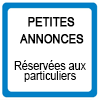
passer une petite annonce

passer une annonce de covoiturage

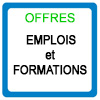
passer une annonce d’emploi
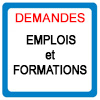
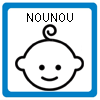
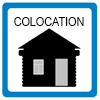
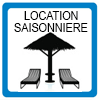
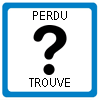
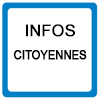
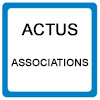
associations, postez vos actualités
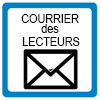
participez au courrier des lecteurs
La Guyane c’est ici
La qualité de l’Air avec
ATMO
Photothèque

Lancements 2022
Vol 259 Ariane 5



